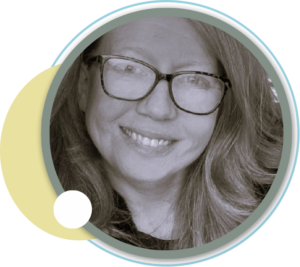As parents of young children who were identified with “special needs”*, my friends and community members regularly had the “labels” conversations.
Mom 1: We have to tell the teachers about Johnny’s ADHD so they can “accommodate” his extended time on tests.
Mom 2: No, if we get accommodations we have to document a disability and that will follow him everywhere he goes.
Mom 3: Why do we need labels? Can’t we wait to see if he grows out of it?
Mom 4: Can’t people just be nice and do the right thing? I met this one college student who mentored my kid for six months until he finished his clinical rotation, and he and my kid really made a great connection. I want all people to be like that one person who was nice to my kid.
Mom 5: Yeah, maybe they’ll be another nice person in his life . . . some day. In the meantime, I don’t want my kid to use disabilities as a crutch. The real world won’t “accommodate” him.
Here’s the thing, people don’t grow out of disabilities. They may learn coping mechanisms that can conceal the disability, or we can enroll people with disabilities (the younger the better!) in programs that naturally recognize and adjust the environment for all ways of thinking. But at the end of the day, when our children turn into adults and wish for autonomy, they need to understand their own needs. Those needs are most simply identified and understood with easily recognized naming conventions, otherwise known as labels.
Self-identification is the very first step to self-advocacy and self-determination. But how does a person deliver that message about themselves without the culturally appropriate and science informed language? And “hiding” the knowledge we have about ourselves connotes shame. Another mom-friend I have collaborated with for decades is famous for saying “They don’t need to know! They’ll just judge us.” Maybe the outside world is not entitled to knowing about minds that work differently than their own. Maybe they are not capable of understanding, much less showing basic human compassion. But how is the world ever going to learn just how pervasive WE ARE within society if we ourselves are secretive and ashamed?
This basic idea is codified in the Americans With Disabilities Act (ADA, 1990) including Section 504 of the Act which requires state funded institutions to serve all students with medical impairments and the Individuals with Disabilities Education Act (IDEA, 1975) where Congress states:
Disability is a natural part of the human experience and in no way diminishes the right of individuals to participate in or contribute to society. Improving educational results for children with disabilities is an essential element of our national policy of ensuring equality of opportunity, full participation, independent living, and economic self-sufficiency for individuals with disabilities.
Despite these decades old federal laws, parents like me and my friends, and other parents all over the country have spent their children’s educational years fighting to enforce these laws and have the resulting PTSD to show for our efforts. It is no wonder that people shied away from identifying their children at all costs to avoid being associated with “those families”. The flip side is that this ostracization caused us to band together and help each other maneuver the system for our children. As a result, WE are a formidable force.
To disclose or not is a very personal decision. Personally, I believe that early learning is best absorbed. The more we raise our children to be self-aware, proud of their strengths and differences that make them unique individuals, and caring toward all humans regardless of their presentation to the world, the kinder the world will be to us all. However, later life evaluations and better access to mental healthcare are greatly assisting folks into happier, healthier lives and leaving the shame and confusion about their differences behind. In my business today where I’m helping individuals into independence and accessing education and employment, I know I’m spreading growth and learning for everyone through the good people I support.
*Disclaimer:
I believe the term “special needs” should be eliminated from the educational lexicon. “Special needs” is a condemnation of the educators. After all, our educators are child development experts. They have about 180 days each year to study how children grow and learn. That’s a lot of data to synthesize.
So why are the educators still taking this data and marking some kids as “special”? Does that really translate to: The educators have drawn a line to say I will only teach to the students who have met developmental milestones that fit what I am willing to teach in the way I am going to teach it? Isn’t that also why we put students in “gifted” classes (another term we should abolish)? Because our educators don’t know how to manage individual students learning at their own pace regardless of where the rest of the students in the same room are learning?
I think if any distinction should be made as to the abilities of the people in the schools, we should designate the subpar educators who can’t teach all students as the “special folks”. They are the people who have earned degrees and titles stating their capabilities. The students are just being kids and trying their best to please the adults around them based on whatever developmental hand they were dealt. That doesn’t seem so special to me.



